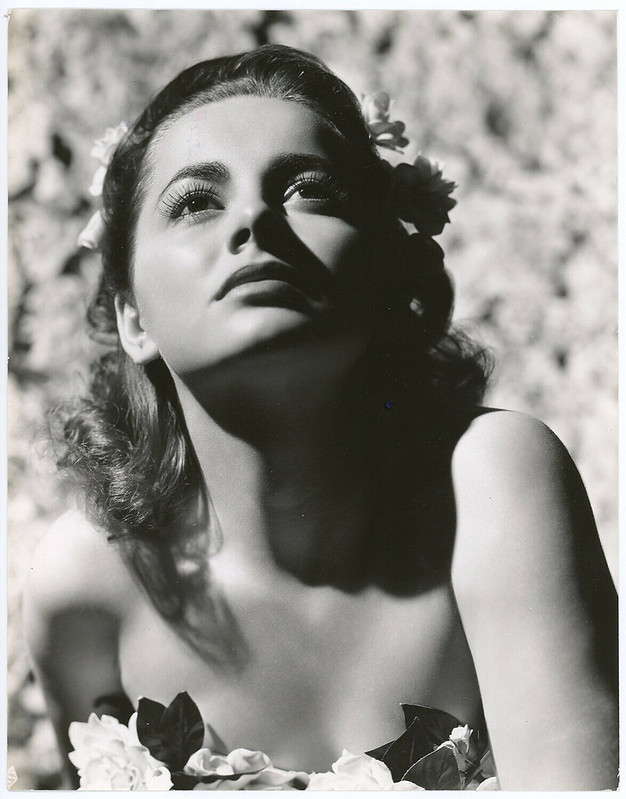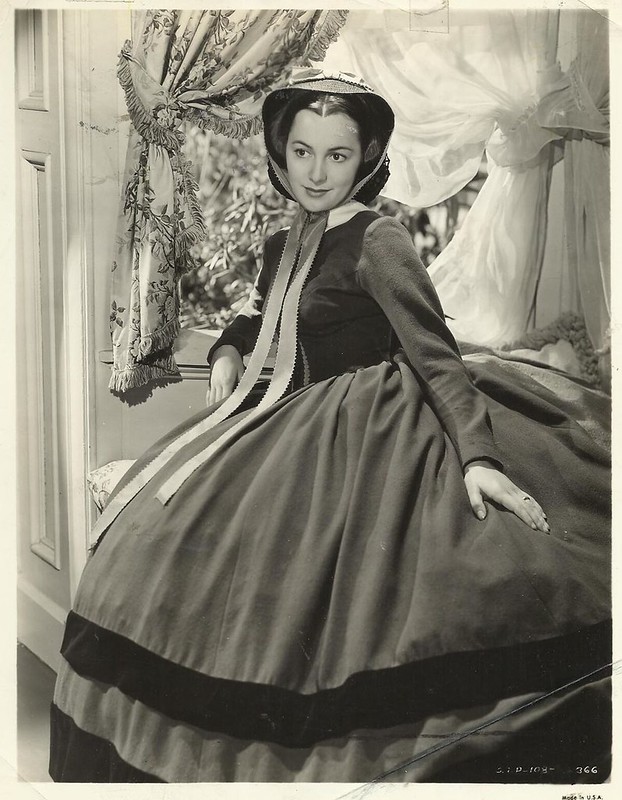“I would prefer to live forever in perfect health, but if I must at some point leave this life, I would like to do so ensconced on a chaise longue, perfumed, wearing a velvet robe and pearl earrings, with a flute of champagne beside me and having just discovered the answer to the last problem in a British cryptic crossword.” ~Olivia de Havilland
On July 26, 2020, Hollywood legend Olivia de Havilland– last surviving star of Gone with the Wind— died peacefully in her sleep at her home in Paris, France, under natural causes. She was 104 years old.
In Hollywood’s Golden Era, Olivia de Havilland was one of the brightest stars. Her evergreen beauty, charm, courage and intelligence set her apart. Best remembered for her role as Melanie Wilkes in Gone with the Wind, she would go on to win two Best Actress Oscars for her powerful performances in To Each His Own and The Heiress. She also received a supporting actress nomination for her role in Gone with the Wind.
But it was de Havilland’s chemistry with dashing leading man Errol Flynn that created movie magic throughout the 1940s. The duo appeared in nine films together, including The Adventures of Robin Hood. Yet, despite a mutual attraction, they were never a real life couple. The twice-married de Havilland blamed it on bad timing. Much less magical was her stormy relationship with sister and fellow actress Joan Fontaine. Rivals as children and estranged as adults, Fontaine beat out de Havilland for the Oscar as Best Actress in 1942, contributing to their very public lifelong feud.
Off the screen, de Havilland also engaged in two major legal conflicts. In 1944, she won a milestone case that imposed a seven-year limit on Hollywood studio contracts with performers. She essentially took down the studio system that penalized actors for rejecting rolls. This legal victory became known as “The de Havilland Law.” More recently, de Havilland failed with a lawsuit with a complaint objecting to her portrayal in the FX mini-series Feud: Bette and Joan.
She made 49 films over the course of six decades, but her career also included presidential honors and the title “Dame” from the Queen of England. It bespoke of regal dignity that made Olivia de Havilland one of Hollywood’s enduring stars. But it’s her performances in films like Gone with The Wind that won her a legion of fans. This monumental Civil War epic has come under political scrutiny in today’s culture, but the controversy has done little to diminish the film’s attraction. Olivia once said of GWTW, “It’s about struggle and it’s about survival, and those are things familiar to everyone.”
Although several actors and actresses still remain from the “Golden Age,” Olivia was the last true star of the era. Kirk Douglas, who had passed away in February 2020, was the last male star. It is fitting, however, that Olivia would be the last holdout to enter eternity. She was universally loved and respected by those who knew her and those who only knew her image.
Ten Must-See Olivia Films:
A Midsummer Night’s Dream (1935)
Captain Blood (1935)
The Adventures of Robin Hood (1938)
Gone with the Wind (1939)
The Strawberry Blonde (1941)
Hold Back the Dawn (1941)
To Each His Own (1946)
The Snake Pit (1948)
The Heiress (1949)
Hush… Hush, Sweet Charlotte (1964)
Recommended Reading:
Olivia de Havilland: Lady Triumphant (2019) by Victoria Amador
In lieu of a definitive biography on Olivia de Havilland, I recommend this more recent work, which includes Olivia’s centenary and her recent court case against the producers of Feud. Amador is not a film historian, but she did meet Olivia on several occasions. Her decades-long relationship with the star informs the writing and gives the reader a fuller portrait of a woman who was always protective of her image.


